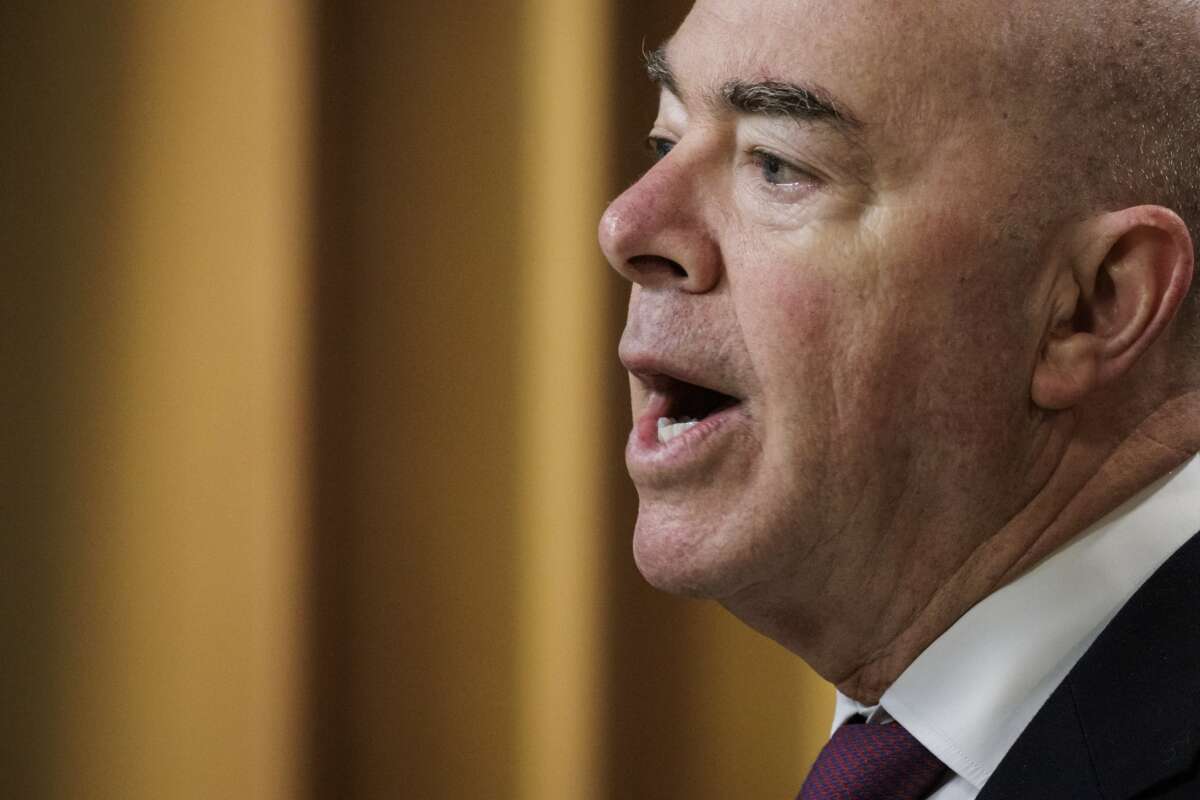After failing to win an impeachment vote last week against a Biden administration official, Republicans have scheduled a “re-vote” on Tuesday in which a long-absent member of their House conference could potentially cast the deciding vote.
Department of Homeland Security (DHS) Secretary Alejandro Mayorkas survived an attempted impeachment vote last Tuesday by a vote of 214 House members in favor and 216 against. Four Republicans joined every Democratic member of the chamber in voting against the measure, though only three were actually opposed to impeachment, with the fourth voting against it for procedural reasons so that a re-vote could take place in the future.
If the fourth member voted in favor of the measure later this week, the House vote would be a 215-215 tie. Republicans are hoping that on Tuesday, when House Majority Leader Steve Scalise (R-Louisiana) returns to the Capitol after having taken time off for cancer treatments, they can hold another impeachment vote and win by the slimmest of margins possible.
The vote would need to happen during the day, as a special election in New York to fill the vacated seat formerly held by George Santos could give Democrats an extra vote in the chamber shortly after. If a delay in the Mayorkas impeachment vote occurs with a Democrat winning that election, and if the three dissenting Republicans remain steadfast against impeachment, the measure would likely fail once again.
If the impeachment measure passes, it would lead to a trial in the Senate, where two-thirds of members would be needed in order to remove Mayorkas from his position. With the upper house of Congress being in Democrats’ control, such an outcome is highly unlikely.
Republicans are ostensibly trying to impeach Mayorkas over his handling of immigration, specifically what they perceive to be his ineptitude in managing DHS and securing the U.S. border with Mexico. However, many legal experts say that his actions don’t reach the standard of impeachable offenses, and that the effort to remove him has more to do with GOP lawmakers attempting to make President Joe Biden look bad ahead of his likely election rematch against former President Donald Trump.
Mayorkas, for his own part, doesn’t seem rattled by the possibility that he could be impeached on Tuesday. On NBC’s “Meet the Press” program over the weekend, the DHS secretary said that the impeachment effort by Republicans hinged on “baseless allegations” against him.
“That’s why I’m really not distracted by them,” Mayorkas added. “I’m focused on the work of the Department of Homeland Security.”
Speaking against the authoritarian crackdown
In the midst of a nationwide attack on civil liberties, Truthout urgently needs your help.
Journalism is a critical tool in the fight against Trump and his extremist agenda. The right wing knows this — that’s why they’ve taken over many legacy media publications.
But we won’t let truth be replaced by propaganda. As the Trump administration works to silence dissent, please support nonprofit independent journalism. Truthout is almost entirely funded by individual giving, so a one-time or monthly donation goes a long way. Click below to sustain our work.
